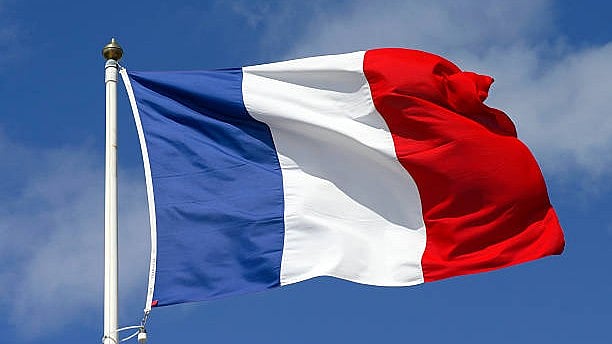
Representative image of France flag.
Credit: iStock Photo
Robert Badinter, the lawyer and former justice minister who led France to abolish the death penalty, was inducted into the Panthéon in Paris recently – 44 years to the day after the abolition law took effect. Badinter often said that while he had always opposed the capital punishment, it was injustice in court that transformed his belief into a lifelong mission.
He defended Roger Bontems, a prisoner involved in a hostage-taking incident in which another man committed the killings. Although the jury accepted that Bontems had not killed anyone, he was still sent to the guillotine in 1972.
“I saw, in the name of justice, a man cut in pieces – because that is what the guillotine really means – without ever having killed anyone,” Badinter told Radio France Internale in 2005. “There was no blood on his hands. I could not accept this idea of justice. Justice cannot kill. From that moment on, I became an activist.”
Five years later, Badinter defended Patrick Henry, who had been convicted of murdering a seven-year-old boy. His powerful plea during the trial helped spare Henry’s life and turned the case into a defining moment in France’s national debate on capital punishment.
It is startling to recall that an advanced country such as France still guillotined its convicts as recently as the 1970s. The last execution by guillotine in France took place on September 10, 1977, when Hamida Djandoubi was executed. Djandoubi, a Tunisian man, was convicted of kidnapping, torturing, and murdering Élisabeth Bousquet. His execution was the last in the Western world by guillotine, preceding France’s formal abolition of capital punishment in 1981.
Across the Western world, most nations have long abolished capital punishment. England did away with it in 1965, after a wrongful execution drew public outrage. Only a few states in the United States continue to retain it. Several Arab and Islamic nations continue to enforce capital punishment, often carrying out executions in public, underscoring the stark differences in how societies conceive justice.
The death penalty is fundamentally derived from vengeance rather than justice. Capital punishment is defended as serving a just retribution for heinous crimes. But at its core, it actually perpetuates a cycle of violence and revenge, disregarding the opportunity for understanding, rehabilitation, and the potential for redemption. A justice system that chooses retribution over rehabilitation risks losing its moral anchor. A deeper examination of alternative forms of punishment that prioritise fairness and humanity is imperative in a civilised society.
The greatest injustice occurs when the legal system meant to protect the innocent fails. When the very system that is meant to uphold fairness and protect those who are wrongly accused fails to do so, it not only inflicts grave harm upon the innocent but also erodes public trust and calls into question the entire legal process. This echoes the need for addressing and rectifying such flaws within the legal system, not irreversible punishment.
Capital punishment has, at times, been reduced to a grim public spectacle -- a reflection of society’s darker fascination for violence. Executing a helpless person, however legally justified, remains a troubling act that tests our collective conscience. This is the irony which helps perpetuate the gory saga of hangings and judicial occurrences of gas-chambering. Sending a convict to the gallows is galling.
Every human being is worth more than the worst thing they have ever done. Every human being is worth more than the worst thing they have ever done. The profound moral question is not whether a convict deserves to die, but whether society deserves to kill.
Furthermore, the death penalty perpetuates a cycle of violence and revenge. In taking a life, even in the name of justice, we risk diminishing our own humanity.
(The author is a Pune-based independent writer and columnist)
(Disclaimer: The views expressed above are the author's own. They do not necessarily reflect the views of DH.)